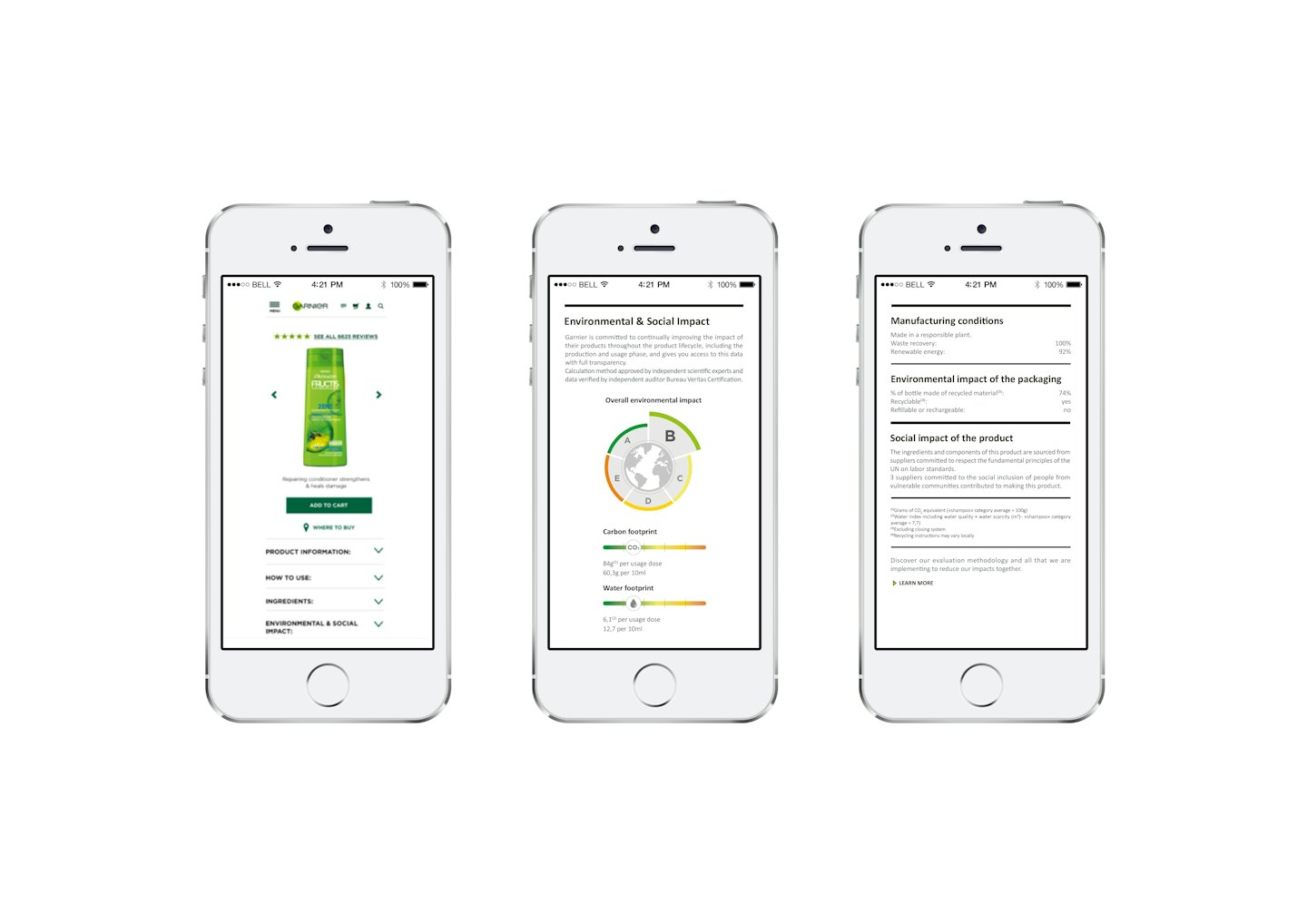L'Oréal has today announced a new programme called L'Oréal For The Future, which outlines the company's ambitions to be fully sustainable by 2030. It's a bold target, especially for the biggest beauty company in the world but, given that L'Oréal currently owns brands including Garnier, Armani, Lancôme and Maybelline, it's one that would make considerable difference to our planet.
How Will L'Oréal Become Sustainable?
The company has identified 'planetary boundaries', within which, it says, it will aim to operate. L'Oréal defines these boundaries as 'limits, which, if crossed, will compromise the Earth’s capacity as a habitat for human development. Respecting a safe operating space for humanity must be a priority in the decades to come, as scientists unanimously agree , which is why L’Oréal aims to transition to a way of operating its entire business within the limits of the planet.'
So, what does that actually mean in practice? The company has highlighted three major changes in the form of the below:
o By 2025, all of L’Oréal’s sites will have achieved carbon neutrality by improving energy efficiency and using 100% renewable energy.
o By 2030, 100% of the plastics used in L’Oréal’s products’ packaging will be either from recycled or bio-based sources.
o By 2030, L’Oréal will reduce by 50% per finished product, compared to 2016, its entire greenhouse gas emissions.
While the beauty industry clearly still has a very long way to go in terms of sustainability, L'Oréal has been a frontrunner with regards to the cause in the last few years. It is the only company in the world to have received an 'A' score in all CDP rankings, which include climate protection, water management and forest preservation, and has done so for four consecutive years. Also, by the end of last year, it had reduced the CO emissions of its factories and distribution centres by 78% compared to 2005, despite the fact its volume of production increased by 37% over the same period.
Inclusivity
As well as environmental causes, L'Oréal has pledged to build a more inclusive environment – something which, while long overdue, is also very welcome news, particularly in the wake of Munroe Bergdorf's own experiences with the company (she has since accepted a seat on L'Oréal Paris' UK Diversity and Inclusion Advisory Board).
But inclusion doesn't just refer to brand ambassadors or those representing L'Oréal, which is why the company has outlined the following pledges, to be achieved by 2030:
- 'We will ensure that 100% of our strategic suppliers’ employees will be paid at least a living wage, covering their basic needs and those of their dependents, calculated in line with best practices.
- 'We will help an incremental 100,000 people from disadvantaged communities gain access to employment.
- '3 million people will benefit from our brands’ social engagement programs.'
Charitable Donations
L'Oréal has also announced it will allocate €150 million to address urgent social and environmental issues, including supporting highly vulnerable women. 'The crisis triggered by the Covid-19 pandemic exacerbated many existing inequalities, with devastating effects on those who were already struggling socially or economically or were victims of abuse, especially women,' said the company. It will therefore give €50 million to support organisations and charities which strive to help women out of poverty, those that provide assistance to refugee women, disabled women and victims of domestic abuse, and those enabling women to achieve social and professional integration.
The remaining €100 million will go towards building a circular economy and to the regeneration of nature, which includes restoring degraded ecosystems.
New Product Labelling
What does this all mean for you as a consumer? Well, one of the major changes that will make buying sustainable beauty products much easier is L'Oréal's new approach to product labelling. Every product will be labelled with a score ranging from A to E, with A referring to the 'best in class' in terms of environmental impact.
According to the company, 'The score will give an accurate vision of the impact of a L’Oréal product by taking into account 14 planetary impact factors such as greenhouse gas emissions, water scarcity, ocean acidification or impact on biodiversity, measured at every stage of a product’s life cycle.
'In addition, L’Oréal will share details about the manufacturing conditions and packaging profile of each product. The labelling will also display key information regarding a product’s social impact, including compliance by raw materials and packaging suppliers with the fundamental principles of the United Nations on labor standards and the number of suppliers committed to social inclusion and having contributed to the product, if any.'

Of course, Covid-19 has forced businesses of all kinds throughout the world to reassess working practices and, hopefully, this could mean a more positive future for the planet. But it would require large corporations to follow L'Oréal's lead and make significant changes to the structure, approach and daily execution of business.
It can be easy to be cynical when huge companies announce their intentions to be better; to be inclusive, fair and responsible. But L'Oréal For the Future certainly seems like a giant step forward for a single business that is leading a hitherto problematic industry. We can only hope that its ambitions become our reality.
